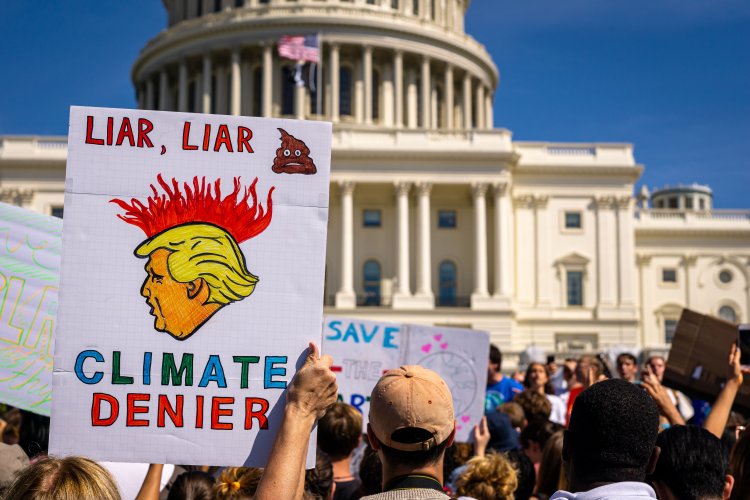Donald Trump's climate policy as the 45th President of the United States was controversial and aimed at prioritizing economic interests over environmental initiatives.
EcoPolitic tried to figure out what steps Trump will take in the field of environmental policy after taking office, based on his actions in the previous term.
The climate policy of the newly elected president's administration from 2017 to 2021 demonstrated a sharp departure from the strategies of previous years aimed at combating climate change. Trump preferred US energy independence to climate initiatives, especially due to the development of fossil fuel production and the reduction of environmental restrictions.
Here are the 5 most resonant decisions regarding climate-related issues of the re-elected US president during his previous term:
- Withdrawal from the Paris Climate Agreement.
One of the first steps of the Trump administration was the US withdrawal from the Paris climate agreement in 2017. He has abandoned global commitments to cut emissions. According to Trump, the country's participation in the agreement put economic pressure on it, limited industry and cut jobs in the fossil resource sector.
Trump and his cabinet did not believe the predictions of most scientists that climate change would have catastrophic consequences and that carbon dioxide was the main driver of climate change.
Withdrawal from the Paris Agreement drew strong criticism both within the United States and internationally, as the United States became the only nation to withdraw from the agreement.
In early July, Donald Trump campaign spokeswoman Caroline Leavitt told Politico. stated that he will withdraw the United States from this international climate agreement for the second time in history if he wins the presidential election in November.
- Cancel the Clean Power Plan.
Another important change was the repeal of the Clean Power Plan implemented during the Obama administration. This document was intended to reduce emissions from coal-fired power plants by 32% by 2030.
Trump replaced it with the less binding Affordable Clean Energy Rule, which left more power to the states and did not actually require emissions reductions. This relaxation of environmental regulations has helped to continue the use of coal-fired power plants, which have had a significant impact on overall air pollution levels.
It is worth recalling that by the end of Trump's term, his administration had repealed 98 environmental regulations.
- Support for fossil fuel extraction.
Trump's policies during his previous term in office focused on US "energy dominance". He has been a strong supporter of oil, gas and coal development, including on federal lands even in national parks and preserves such as the Arctic National Wildlife Refuge.
During his tenure, a decision was made to allow mining in US marine areas, including the Atlantic Ocean and the Arctic. In 2018, the United States became the largest producer of oil and natural gas, although analysts and market experts attribute this result more to technological developments than to policy changes.
- Resistance to clean energy development.
Trump has not supported the development of renewable energy sources such as wind and solar power. He considered them unreliable and economically unfeasible. The 45th (and now 47th) President of the United States has often spoken out against wind turbines, calling them hazardous to the environment and harmful to marine life.
His administration also scaled back support for electric vehicles when it exempted manufacturers from stringent fuel economy and emissions regulations. Overall, the Trump administration has focused on short-term economic benefits from fossil resources and neglected long-term environmental responsibilities.
- Impact on public health and the environment.
The relaxation of environmental regulations had not only an economic impact, but also a significant social impact. The analysis found that Trump's climate policies could lead to significant increases in deaths from air pollution and cardiopulmonary disease. The repeal of the Obama-era Clean Water Rule and relaxation of controls on toxic emissions have led to increased pollution of water resources and soils, which has a direct impact on the quality of life of the population.
A 2018 analysis reported that the Trump administration's environmental rollbacks and proposed changes to environmental regulations would likely "cost the lives of more than 80,000 U.S. residents over a decade and cause respiratory illnesses in more than 1 million people."
Thus, the Trump administration's climate policies were built on the idea of economic development through the use of natural resources, but significantly weakened environmental protections and US commitments to the international community. This approach has left consequences that the Joseph Biden administration has had to deal with.
EcoPolitic previously wrote that two US presidential candidates – Kamala Harris and Donald Trump – have radically different views on how the United States should combat climate change.





